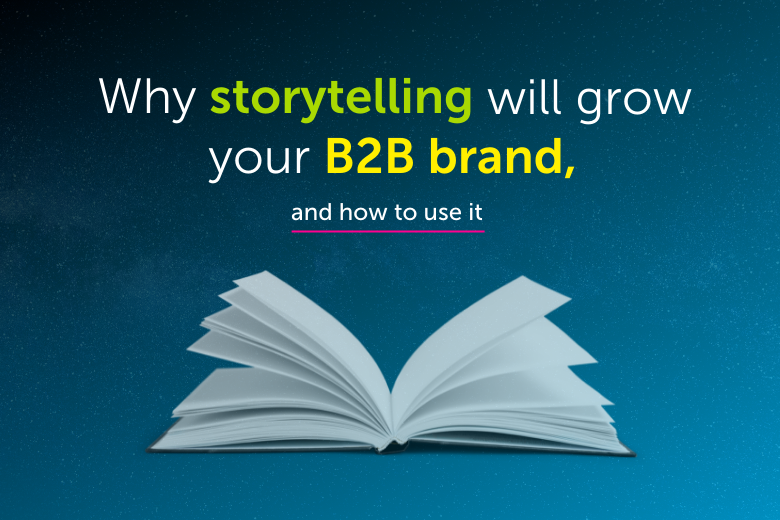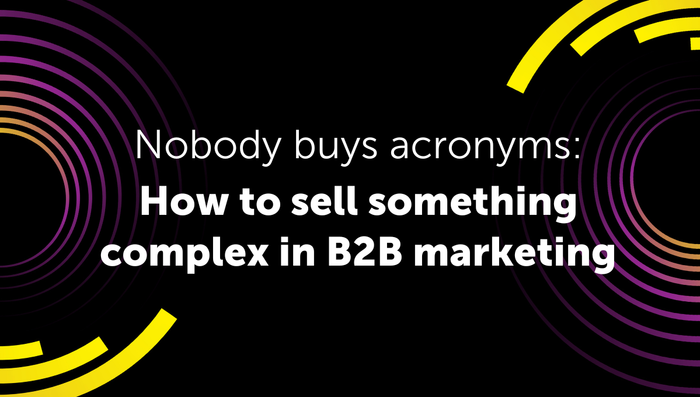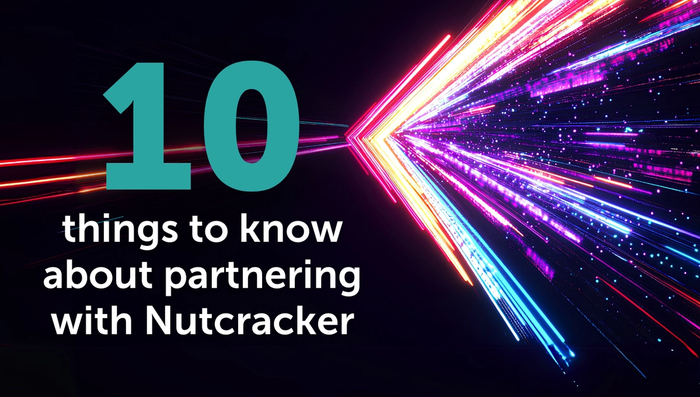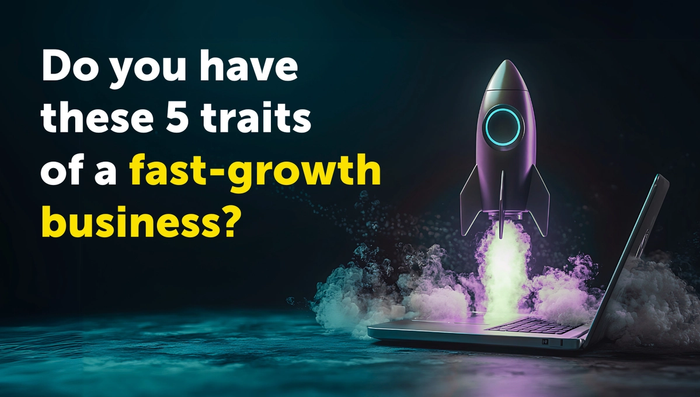Marketing
B2B Brand Storytelling for Business Growth
TLDR
Storytelling isn’t just for B2C brands; it's a powerful tool for building trust, creating emotional connections, and driving business growth in the B2B world. This guide goes beyond theory to provide a strategic framework for B2B storytelling.
You'll learn how to position your customer as the hero of the story, apply proven frameworks, and distribute your narrative across the right channels to generate more leads and revenue.
How B2B brand storytelling drives business growth
In a market saturated with features and specifications, a brand’s ability to tell a compelling story can be its greatest competitive advantage. In B2B marketing, storytelling is about more than just grabbing attention; it's about building trust, fostering emotional connections, and, ultimately, driving business growth.
Your brand has a story, but so does every other business. So, how can you make yours one that people listen to, trust, and act on?
The truth about your brand story: the customer is the hero
A common mistake in B2B storytelling is to focus on your brand as the hero of the narrative. You might talk about your innovative technology or your long list of accomplishments. But in the best stories, the hero is not the brand; it's the customer.
Your brand is the wise guide, the mentor, or the tool that helps the customer (the hero) overcome their challenges and achieve their goals. By positioning your customer at the centre of the narrative, you create a story they can see themselves in, making your message immediately relatable and far more impactful.
B2B storytelling frameworks that work
Once you've made your customer the hero, you need a framework to tell their story effectively. Here are two proven models that work perfectly in a B2B context:
The Problem-Solution-Result Framework
This is a simple, highly effective model perfect for case studies, testimonials, and marketing emails.
- Start by describing a common challenge or pain point your ideal customer faces. This establishes empathy and shows you understand their world.
- Introduce your product or service as the tool or guide that helps the hero solve their problem.
- Detail the positive outcome or success the customer achieved after using your solution. This provides concrete evidence of your value.
The Hero's Journey
This is a more classic framework for a bigger brand story, often told on "About Us" pages or in keynote speeches. The customer (the hero) leaves their comfort zone to solve a problem, encounters challenges, receives help from a guide (your brand), and eventually returns with a transformed life or business.
Case studies & testimonials put proof in practice
One of the most powerful ways to tell a B2B story is through a case study. A well-written case study is not just a list of metrics; it’s a narrative that follows the problem-solution-result framework.
Our actionable tip: Don't just show the "after." A great case study details the "before" state and the journey to a positive outcome. It includes quotes from real people, making the story feel authentic and trustworthy.
Building your story across all channels
Your brand's story shouldn't be confined to a single blog post. It needs to be a unified narrative that permeates every aspect of your marketing.
Your website’s "About Us" page, product descriptions, and home page copy should all reflect your core brand story.
Use your email campaigns to tell your story in a series of chapters, building a connection with your audience over time.
Video testimonials, customer spotlights, and podcast interviews are powerful tools for sharing your story through the voices of your customers.
Measuring your story's impact on business growth
So, how do you know if your storytelling is working? You have to connect your narrative to your business goals.
Track how people interact with your content. Are they sharing your case studies? Is your blog driving conversations on social media?
Are the leads generated from your content marketing efforts more qualified than others? Do they convert faster because they already know and trust your brand's story?
An increase in people searching for your brand name is a strong indicator that your story is resonating and building recognition.
Storytelling is not just an art; it’s a strategic business tool. By telling a compelling story with your customer as the hero, you can connect with your audience on a deeper level, build lasting trust, and drive sustainable growth for your business. For a full breakdown of how to build a winning brand and content strategy, explore our Content Marketing services.
How storytelling drives b2b growth
You’ve almost certainly been at a party and found yourself stuck with someone who talked about themself, exclusively and non-stop. Remember how you felt then.
You probably couldn’t wait for it to stop, and you definitely didn’t want to encounter that person again.
That’s exactly how people feel when they see bad B2B marketing. When businesses talk endlessly about their solutions, their USPs, and their expertise, prospects are at best uninspired and at worst driven away.
Bad B2B marketing is often driven by the dangerous assumption that you convince people to buy things through facts and logic.
The truth is, however many incredible numbers you have at your fingertips, they can’t do the job on their own.
Can’t wait to finish the story? You can download our ultimate guide to B2B Storytelling.
Why is brand storytelling important? People buy with emotion
The decision to buy is emotional — intellect is just there to justify that decision.
Imagine you had a ticket for a one-night-only reunion gig for a band you love that broke up twenty years ago.
It just so happens that the train drivers have since called a strike for that day.
You might shell out £100 for a taxi because you’d be desperate to get to that gig. The willingness to pay that much for a car journey comes from the emotion you attach to the destination.
If the strike was stopping you from getting to a coffee with an old acquaintance who you didn’t really want to see, you’d just stay at home.
Adding value: why storytelling is important for brands
A mistake that some B2B marketers make is assuming that because their audience is commercial, storytelling has no place in their marketing. It’s business, so the audience is professional and serious, driven by numbers and ROI.
Except that’s not true.
If anything, the B2B buying process is more emotional than consumer purchases.
There’s so much more at stake — more money, professional reputation, careers, whole companies, and the people behind those high stakes are still very human, with very human instincts.
Should storytelling in B2B marketing always be emotional?
“Quite a lot of brand success is down to being the kind of product which people can buy without thinking too much about it...”
Rory Sutherland
When telling your brand’s story, it’s tempting to make it about features and benefits — you want your audience to see your logo and think of saving money, making more products in less time, spending less time on admin, or whatever problem you solve.
However, we know that people buy with emotion.
That means a good brand is made of emotions, and good branding is the symbol of those. If you’ve done an acceptable job of building your brand, your logo makes your audience quickly think something. If you’ve done a great job, it makes them quickly feel something.
One of the best ways to get to achieve that is through stories. The combination of branding and storytelling is incredibly effective at stimulating emotion —we’re wired for empathy, and stories trigger that.
Why does brand storytelling work?
The most effective commercial storytelling tells readers how to overcome challenges: it’s no different to good storytelling in general.
It could be that you need to destroy a space weapon the size of a moon, you need to throw a ring into a volcano that’s guarded by heavily armed goblins, or you need to compete at the Winter Olympics and your native Jamaica lacks bobsled training facilities.
Stories resonate emotionally because we empathise with the struggle and enjoy the success. B2B storytelling works because you’re selling something that’s designed to do exactly that — overcome challenges.
That means that in your product or service, there’s already a story about your customer overcoming their challenges.
It’s sitting there waiting for you to tell it.
Download Your Free, Ultimate Guide to B2B Storytelling Here
What does the best B2B storytelling look like?
B2B storytelling is not self-indulgent marketing from frustrated creatives who’d rather be working on their novel.
Commercial storytelling is as results-driven as a cold call.
Our CEO Jenny founded Nutcracker to end the disconnect between sales and marketing, and stories are where the two can unite to become unstoppable.
Salespeople speak to your audience every day, getting them to open up and share their business struggles. They hear first-hand the real-life stories of business leaders and everything they have (and have yet to) overcome.
Armed with that inspiration, marketers can create the most resonant and arresting content that your target market has ever seen. The leads and enquiries that your marketing generates will be full of prospects who are in the perfect emotional state to buy. Then the cycle continues.
If you’re not using B2B storytelling to grow your business, it’s time to start. Call us on 0203 941 0305, or drop us an email, and you can tell Jenny your story over a coffee — we’ll show you how content can take your brand to new levels.
Recommended Reading
How to Make People Remember Your Brand
This article goes hand-in-hand with storytelling. A great story is the foundation of a memorable brand, but the design and psychological principles are what make it stick. This guide offers actionable tactics to ensure your brand's visual identity and messaging are as unforgettable as your story, helping you win mindshare and become the first name prospects think of.
Author Bio
Charlotte Delaney is a seasoned marketing professional and the Head of Content at Nutcracker, a B2B marketing agency specialising in supporting fast-growth companies. With a passion for demystifying complex marketing concepts, Charlotte draws on her extensive experience working with clients in the technology and financial sectors. She has a proven track record of developing data-driven content strategies that drive tangible business results. Her expertise lies in connecting brand narratives to current cultural moments, a skill she applies to help businesses create campaigns that are both relevant and impactful. You can connect with her on LinkedIn.
Share this:





